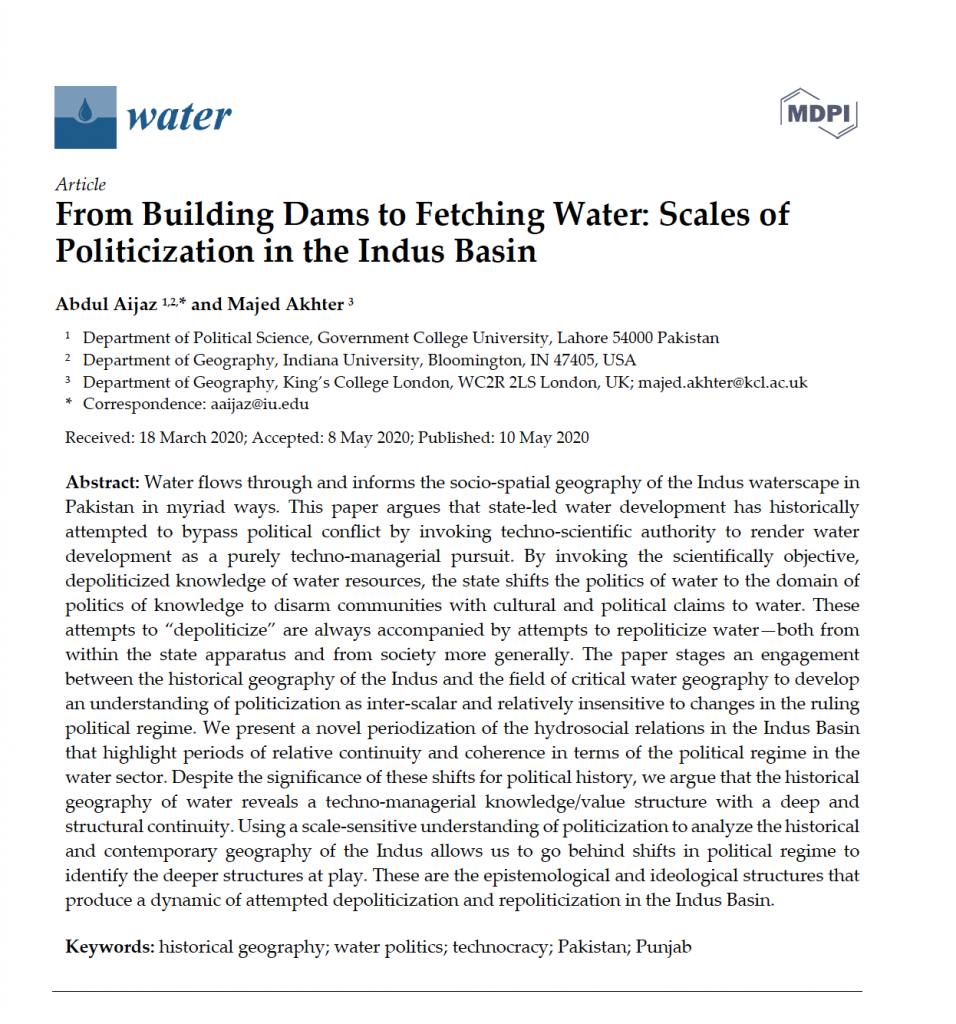King’s Water scholar Majed Akhter and colleague Abdul Aijaz published a new paper this month that challenges perspectives on water governance and calls for “great greater attention to the politics of knowledge—especially the depoliticizing impulse of technocratic knowledge—in the history and politics of river basins,” specifically in the Indus.
“We argue that there exists a remarkable stability in the knowledge/value structures underpinning water development in the Indus Basin since the late 19th century. It is these knowledge/value structures that entrench the dynamic depoliticization and repoliticization in the politics of the Indus”
Their paper provides a strong analysis that questions the way scales are usually addressed, and emphasized nested dynamics associated with socio-hydrological challenges:
“Scales are understood as a contradictory tension between discrete yet relationally connected levels of knowing, narrating, and experiencing social and political activity”

This work is particularly important, as Pakistan holds the world’s longest contiguous irrigation system and the Indus River Basin has an estimated 300 million people living across its vast waterscape.
Access the article here.